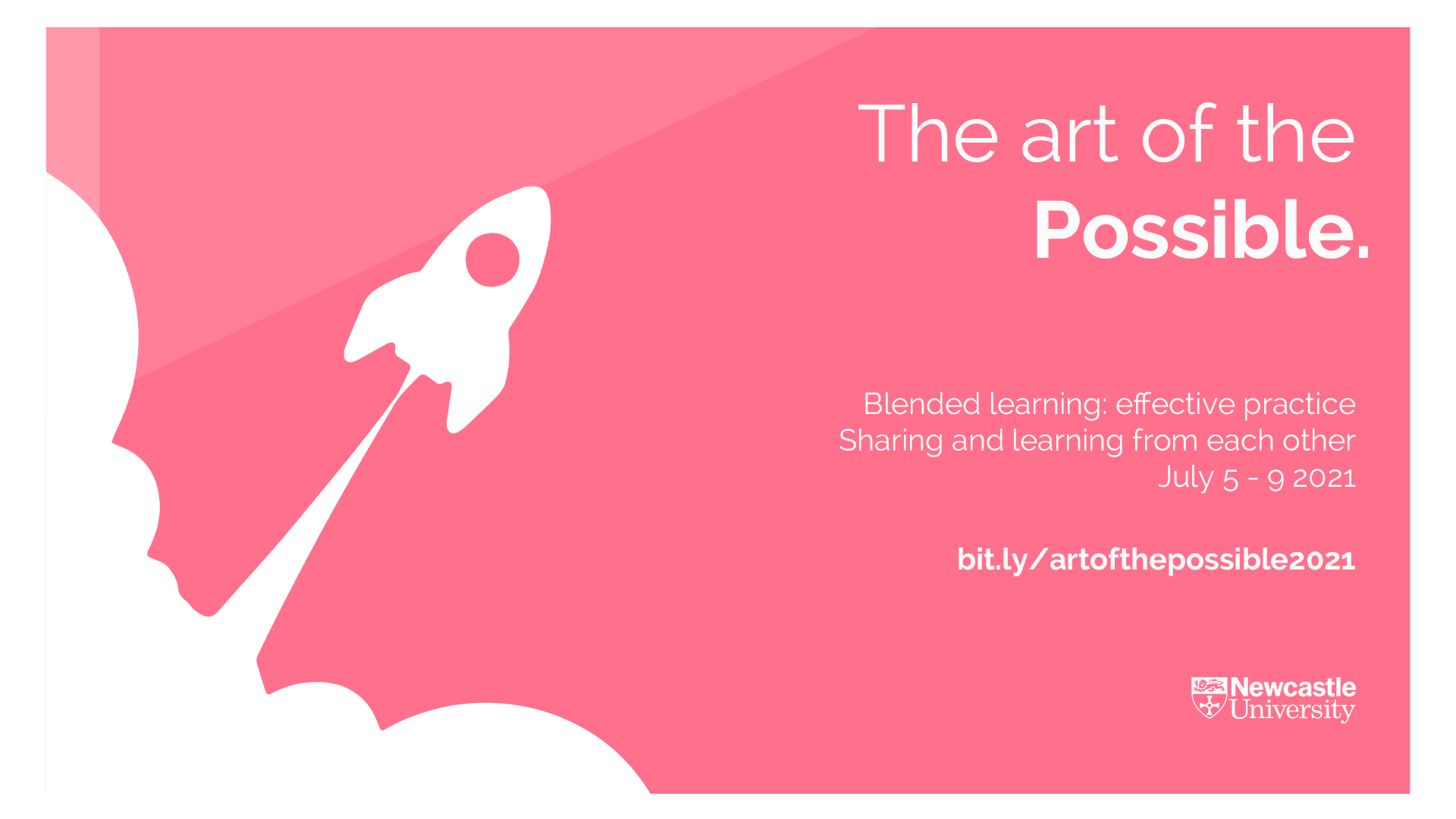Welcome to the art of the possible week 2021 case study page.
This page will focus on case studies that will promote blended learning, effective practice, ways to share, and opportunities to learn from each other.
Select each link to find out more. Remember we will be releasing more throughout the week.
Case study one – The Language Resource Centre’s Online Tandem Board
In the past the Language Resource Centre used a physical tandem board, where students could come in and pin up a notice to say what languages they spoke and what languages they wanted to practice. With lockdown in March 2020 and no access to the physical centre, within a week an online version of the tandem board was set up to facilitate people being able to do language exchanges entirely remotely wherever they were.
Find out more here.
Case study two – Peer-Assisted Learning (PAL) Language Practice Programme
Over the years the Language Resource Centre has offered a programme of student-led language learning groups during term-time. These groups provide an opportunity for informal speaking practice to all Newcastle University members who are registered with the LRC. With the March 2020 lockdown, the decision was made to continue this activity but to trial taking it online using Microsoft Teams. For the academic year of 2020-21 the programme was run entirely online and was also expanded, in terms of number of hours offered, the types of sessions and languages.
Find out more here.
Case study three – Cultural Peeps Podcast
Iain Wheeldon from the School of Arts and Cultures runs the podcast Cultural Peeps; a series of interviews with Arts and Cultures professionals working across the sector. The interviews focus on their career journeys, and allow listeners to gain insight into real life careers in Arts and Cultures, and the various circumstances that influence their direction.
Find out more here.
Case study four – Engineering Poster Competition
One of the high points for Stage 3 students is the annual poster competition normally held in a large venue with all students and supervisors simultaneously. This is something that could not happen this year due to the pandemic restrictions. Miro was used to set up a poster exhibition for around 80 posters which is simply accessible via a URL.
Find out more here.
Case study five – Making Data Accessible for Business Students
Making data analytics more accessible for students of Newcastle Business School using a range of engagement methods and software.
Find out more here.
Case study six – Creating a Canvas Community
The Philosophy team needed a space for students where they could share important information, events and opportunities in a way that wouldn’t be overwhelming. They knew they wanted to avoid sending lots of emails, so a Canvas Community provided a great option.
Find out more here.
Case study seven – Sustainable Futures in Focus – Global Partner Student Research Poster Competition and Forum
A collaboration with four other Universities provided students with a unique opportunity to showcase research related to UN Sustainable Development Goal 10: Reduce inequalities within and among countries.
Find out more here.
Case study eight – Using Design Sprints to Stimulate Students Collaboration
A Design Sprint is a process condensed in time, objective and outcomes used to transform an idea into a prototype. This case study explores how this approach was used to gather students’ feedback on using data analytics to support their learning experience.
Case study nine – Assessing students innovatively via peer-reviewed small group video presentations
Students assessment through a pre-recorded oral group presentation submitted via Canvas. The assessment also included peer feedback.
Find out more here.
We hope you enjoy the art of the possible 2021. Get in touch at ltds@ncl.ac.uk

